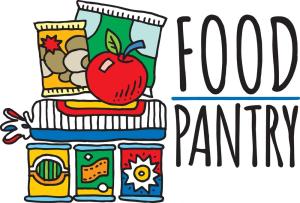Why Sustaining Your Local Food Kitchen Is Essential for Aiding Those in Requirement
The value of sustaining regional food pantries can not be overemphasized, especially in the context of food insecurity, which impacts an alarming number of individuals and families within our areas. As we discover the multifaceted role of food kitchens, it becomes apparent that their effect expands far past just dispersing food.
Comprehending Food Instability
Food insecurity influences about 10.5% of homes in the United States, showing a considerable public wellness problem that goes beyond plain appetite. It describes the absence of regular access to adequate food for an active, healthy and balanced life. This problem can bring about a variety of adverse results, including bad health and wellness, increased healthcare costs, and decreased academic performance among kids.
The reasons for food instability are multifaceted, commonly stemming from economic variables such as poverty, unemployment, and underemployment. Geographical area can additionally play a crucial duty, with food deserts-- locations with minimal accessibility to budget friendly and nutritious food-- worsening the concern - Food Pantry Lockhart. In addition, systemic elements, consisting of social and racial inequities, add to the out of proportion impact of food insecurity on marginalized communities
Attending to food instability is not simply regarding increasing food supply; it calls for a comprehensive method that encompasses economic security, education and learning, and neighborhood assistance. Food insecurity not only influences private wellness but likewise has broader implications for social health and efficiency. Recognizing its intricacy is crucial for establishing effective treatments and promoting long-lasting solutions that ensure all individuals have reputable access to nourishing food.
The Role of Food Pantries
Regional food pantries work as essential lifelines for individuals and family members encountering food instability. They provide necessary food items to those who might have a hard time to manage sufficient nourishment due to financial hardship, joblessness, or unforeseen situations. By dispersing food at no charge, these companies assist alleviate cravings and stop the negative health influences linked with insufficient diet plans.
Food pantries often companion with local ranches, food store, and area organizations to source a range of healthy food things, consisting of fresh fruit and vegetables, dairy, and healthy proteins. This collaboration ensures that kitchen customers get not just nourishment however additionally much healthier choices that add to general wellness.
Moreover, food kitchens act as neighborhood centers, fostering connections among locals and giving a feeling of self-respect to those in requirement. Numerous cupboards supply added sources, such as nourishment education and learning and recommendations to social services, assisting customers browse their challenges a lot more properly.
In significance, food kitchens play a complex duty in combating food instability. They not just address immediate hunger but also empower families and individuals to boost their circumstances, thereby advertising area resilience and communication.

Benefits of Supporting Food Pantries

Supporting food kitchens not only nourishes those in demand yet also enhances the fabric of the neighborhood. By supplying essential food resources, food kitchens ease cravings and decrease food insecurity, which is critical for the health and wellness of people and households. Accessibility to nourishing food adds to enhanced physical health, better academic outcomes for children, and enhanced psychological health and wellness, thereby fostering an extra effective and involved neighborhood.
Additionally, supporting food pantries advertises social cohesion. These companies act as centers for neighborhood engagement, bringing together volunteers, contributors, and recipients in a shared goal to fight appetite. This collaboration can damage down obstacles, foster understanding, and construct connections among diverse neighborhood members.
Furthermore, donations to food kitchens, whether in the kind of food, funds, or time, stimulate the local economic climate. Many food pantries focus on sourcing from neighborhood producers, thus supporting neighborhood agriculture and companies. This produces a cycle of assistance that benefits not just those in demand yet try these out the community as a whole.
Just How to Obtain Involved
Interaction with food cupboards can take numerous types, enabling people and groups to make a purposeful impact in their areas. Monetary donations are additionally invaluable, as they make it possible for food pantries to purchase fresh fruit and vegetables and important products.
Offering your time is one more impactful means to sustain regional food cupboards. Numerous organizations depend on volunteers for arranging, packing, and distributing food. This hands-on involvement not just assists the kitchen yet likewise cultivates a feeling of neighborhood. On top of that, think about arranging food drives within your college, neighborhood, or work environment team to elevate recognition and collect resources.
Collaborations with local businesses can further boost assistance for food kitchens. Services can organize contribution events or contribute a section of their sales to the cupboard. Spreading out the word with social media and individual networks assists to enhance visibility and urge others to add. By taking these groups, individuals and steps can dramatically boost the efforts of local food pantries and help those in need.
Neighborhood Influence and Link
Identifying the profound impact of food cupboards on area well-being is crucial for cultivating a spirit of connection and cooperation. Food pantries serve not only as important resources for those dealing with food insecurity yet also as hubs for area involvement. They unite diverse groups-- clients, volunteers, and benefactors-- developing an environment where people can sustain and link each other.
The impact of food pantries extends past plain stipulation of food; they work as a stimulant for social cohesion. By taking part in kitchen efforts, neighborhood members can create relationships that go beyond socioeconomic barriers. This network of support helps to take apart the preconception commonly related to food assistance, fostering an atmosphere of approval and understanding.
Moreover, food cupboards often team up with regional organizations, schools, and organizations, intensifying their reach and performance. These collaborations improve neighborhood durability and motivate a cumulative feedback to food insecurity. As individuals unify in their initiatives to support local food cupboards, they grow a feeling of shared purpose and duty, reinforcing the idea that everybody has a role to play in making certain that no person goes hungry. Inevitably, supporting food pantries reinforces the fabric of the area in its entirety.
Final Thought
Sustaining regional food cupboards is necessary in combating food instability and enhancing the health of at risk populaces. Engagement with food pantries fosters community connections, advertising social communication and equity.
